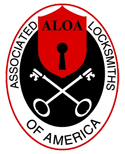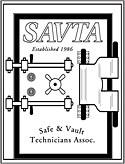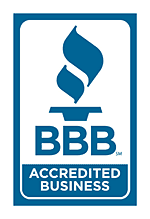Is Your Work Building Secure?

If you live in a major city anywhere in the US, you may have seen an exit door device and simply not understand what you have seen. While most people are not familiar with a crash bar or a panic bar, the city code where the building is does determine what is required for the type of building you are in. Every commercial and public building in North America is outfitted with at least one, and likely numerous, exit devices (also known as crash bars or panic bars.) It is also true that every person who enters a public building has a reasonable expectation of security and safety while inside. Fortunately, exit devices absolutely do have a very important rold in the safety and security of human lives as well as property.
What Is An Exit Device?
An exit device is a type of door hardware which allows doors to remain locked from the outside. It is also true that when people are inside the building, they can still exit quickly without having to unlock the door. The mechanism we are referring to is what actually makes a hands-free exit possible. In fact, the nickname "crash bar" is derived from the ability to open the door by simply applying full-body force to it or someone walking or running and crashing into it.
In some parts of America, some states have changed code requirements for public schools, hospitals, and institutions to allow more secure doors in high wind, tornados, and extreme weather. Remember to check with your favorite Texas Safe and Lock staff to find out any changes in your location setting.
Advantages Of Exit Devices:
Most types of exit devices are advantageous. The most important reason is they are security and safety features. Any property owner who wishes to restrict the public's ability to enter a building to just a few select doors can apply crash bars to all non-public entrances. The exit doors cannot be opened from the outside when locked. In the event of an emergency, like a fire, emergency evacuation, or threat of some kind, everyone inside the building can use these doors as emergency exits by activating the crash bar on the inside of the door. An additional term "panic bar" came to be applied to exit devices because they can be opened quickly in an emergency. Panic bars are also advantageous because people with limited mobility (i.e. those in wheelchairs) and even small children can activate them.
Crash Bar History:
The first crash bar is believed to have been invented in the early 1900's and marketed under the brand name Von Duprin. The company continues to be the leading manufacturer of exit devices today, though other companies have since copied Von Duprin's original design. Von Duprin has also improved on its original design since its first prototype. In today's tech age, there is plenty of new technology whereby these crash bars are now lighter and stronger due to the materials to be used. All of this has resulted in a wide range of quality exit devices on the market.
General Types Of Exit Devices:
- Rim style: This type can be mounted on the inside surface of the door.
- Mortise style: Much like a standard a mortise lock, this type of crash bar has its locking mechanism mounted (mortised) into a cavity in the door.
- Surface/Concealed style: This type of exit device is constructed with vertical rods. Concealed exit devices provide additional latching at the tops and/or bottoms of doors. These types of exit devices are used when aesthetics play a strong factor in door design.
Designs Of Exit Bars:
Most new crash bars are available in various types designs. The standard that most people are familiar with is the touchbar design. A portion of the bar can be pushed which releases the door lock and can be found on utility, service and emergency exit doors. The crossbar style is also popular. The first Von Duprin exit device was a crossbar type. Other styles include lever and plate-type as well.
We understand that most all industrialized countries have some type of building code standard(s) that do dictate how exit devices should be applied to commercial/public buildings. It is very true that there have been many people who have been saved thanks to panic bars since their invention over one hundred years ago. Unobtrusive and seemingly insignificant, exit devices have literally changed the face of building safety and public security in a very significant way. If you are a building owner, make sure your contractors are familiar with current city codes for installation of the correct required exit devices in your city.
Choosing a Rim-Style Exit Device:
Rim-style exit devices are always a great choice for small businesses in densely-packed areas (i.e. business parks, malls and strip malls.) They are extremely cost efficient and comply with most building codes.
Choosing a Mortise-Style Exit Device:
A Mortise-style exit device will be an excellent choice for medium to large-size businesse or building. The mortise design adds extra security and are less prone to tampering.
Choosing a Surface/Concealed Exit Device:
The Surface/Concealed exit device is the perfect choice for large businesses, especially where extra security as well as aesthetics are crucial.
If you have any questions, or need assistance in purchasing exit devices, replacements, or planned changes for exterior and interior exit devices, securing your home or office doesn't have to limited to exit devices. You may want additional locks themselves. Texas Safe & Lock offers a full line of high quality, high security door hardware to compliment the lock systems. And Texas Safe & Lock stocks large quantities, offers competitive pricing, and will install the hardware anywhere in the Dallas/Fort Worth area.
So, if you need the best locksmith service, and you need it now, then call Texas Safe & Lock at 469-467-7233, and you will be provide the best security at very affordable prices.





